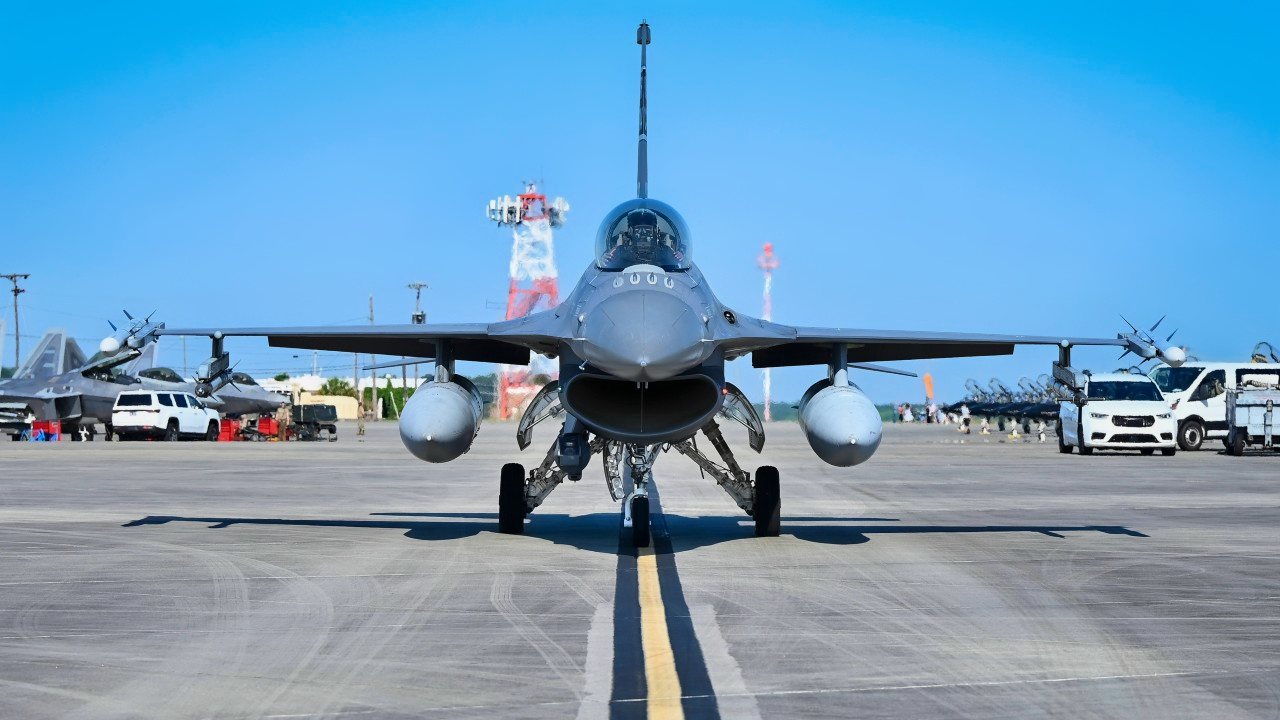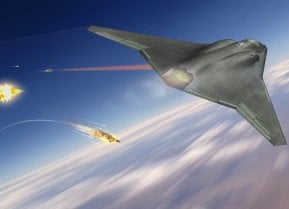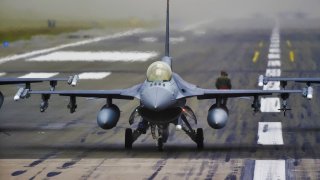Russia Should Be Freaked Out: F-16 Fighters Will Soon Be in Ukraine
Ukraine is set to receive its first batch of F-16 Fighting Falcon fighter jets in the upcoming weeks, potentially altering the air war and the broader conflict with Russia.
Summary and Key Points: Ukraine is set to receive its first batch of F-16 Fighting Falcon fighter jets in the upcoming weeks, potentially altering the air war and the broader conflict with Russia.

-While multiple countries have pledged up to 85 F-16s, not all are operational. Fearing Russian retaliation, Ukraine plans to keep the jets away from frontlines.
-The West's delayed provision of key weapon systems like the F-16s has hindered Ukraine's defense capabilities.
-Despite logistical and political challenges, the West's fear of escalation must cease to effectively support Ukraine. With Russian President Putin determined to continue the war, Western commitment is crucial.
The F-16 Is Coming to Ukraine and Russia Won't Like It
The Ukrainian Air Force is one step closer to receiving F-16 Fighting Falcon fighter jets.
According to U.S. defense officials, the Ukrainian military will receive the first batch of F-16 fighter jets in the upcoming weeks—and most likely before the end of the summer.
If used right, the U.S.-made fighter jet has the potential to change the air war in the skies of Ukraine and even the course of the entire conflict.
F-16 Fighting Falcons for Ukraine: A Game Changer or Not?
According to the Washington Post, Ukraine will be receiving the first F-16 Fighting Falcon fighter jets in the upcoming weeks.
Several countries have committed a varying number of F-16 fighter jets to Ukraine that can reach up to 85. However, not all aircraft are in operational condition, and some will serve as a ready reserve for spare parts.
Ukrainian defense officials suggest that they won’t be using the aircraft close to the frontlines out of fear of losing them to Russian action.
Anticipating the arrival of the F-16 fighter jets, the Russian military has been targeting suitable runways. A conventional take-off and landing aircraft, the F-16 requires a proper runway to operate. In extremis, long roads, such as highways, could still be used.
It is still not clear whether NATO will allow the Ukrainian Air Force to operate its F-16 fighter jets from neighboring countries, such as Poland, Romania, and the Czech Republic.
Delays and the Fear of Escalation in Ukraine War
However, as with many other weapon systems, the West has been late in transferring them to Ukraine. The fear of escalation has long gripped Western leaders, making them reluctant to provide Kyiv with the necessary tools to fight the Russian invading armies effectively. Indeed, despite the undeniable contribution of Western military aid to Ukraine, most of the weapon systems have arrived too late to have the most effect on the course of the conflict.
For example, it took the West about a year to commit main battle tanks, such as the M1 Abrams, Leopard 2, and Challenger 2, to Ukraine. And when they arrived, they didn’t arrive in the right numbers to make a difference in the large-scale counteroffensive of last summer.
Similarly, it took over a year to send Ukraine precision long range munitions, such as the Storm Shadow and SCALP-EG cruise missiles, and almost two years to commit MGM-140 Army Tactical Missile System (ATACMS). These munitions have allowed the Ukrainian military to strike deep behind the front lines and seriously harass the Russian command and control and logistical functions.

To be sure, coordinating an international, multi-billion security assistance lifeline to Kyiv isn’t a piece of cake. There are a lot of moving parts and serious politics involved in the process. However, the common thread of delayed transfers of key weapon systems and platforms out of fear of escalation must end yesterday.
Russian President Vladimir Putin is committed to winning this war, apparently regardless of the cost. It is estimated that more than 700,000 of his countrymen will have died or been injured by the end of the year. Putin and his Kremlin advisers are committed. The West must be, too.
About the Author
Stavros Atlamazoglou is a seasoned defense journalist specializing in special operations and a Hellenic Army veteran (national service with the 575th Marine Battalion and Army HQ). He holds a BA from Johns Hopkins University and an MA from Johns Hopkins’ School of Advanced International Studies (SAIS). His work has been featured in Business Insider, Sandboxx, and SOFREP.
All images are Creative Commons.


